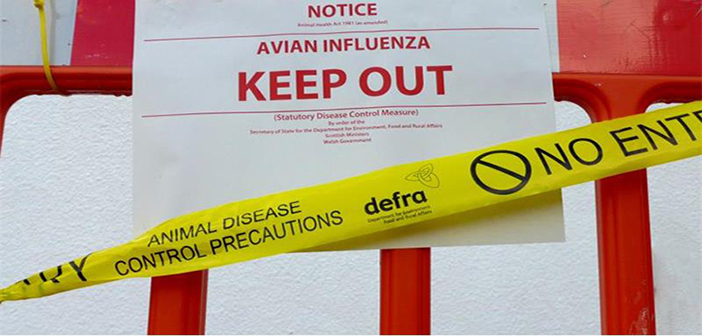A national housing order has been introduced across England, making it a legal requirement for all those keeping birds to house their flocks.
Pest professionals working with birds of prey as a part of their IPM offering should read the biosecurity guidance, which includes details of biosecurity best practice.
Pest controllers working in areas with poultry are advised to be vigilant with PPE and hygiene.
Mandatory housing measures for all poultry and captive birds were introduced to all areas from 00:01 today (Monday, November 7), following a decision by the United Kingdom’s chief veterinary officer, Christine Middlemiss.
The housing measures legally require all bird keepers to keep their birds indoors and to follow stringent biosecurity measures to help protect their flocks from the disease, regardless of type or size.
The order will extend measures that were already in force in Suffolk, Norfolk and parts of Essex to the whole of England, following an increase in the national risk of bird flu in wild birds to ‘very high’.
Ms Middlemiss said: “We are now facing this year, the largest ever outbreak of bird flu and are seeing rapid escalation in the number of cases on commercial farms and in backyard birds across England. The risk of kept birds being exposed to disease has reached a point where it is now necessary for all birds to be housed until further notice.”
Housing alone will not protect birds and people must still follow the other enhanced biosecurity measures mandated by the AIPZ at all times to protect their flocks and prevent the risk of future outbreaks which is circulating in wild birds.
This means pest professionals working on farms or smallholdings with poultry will need to take extra precautions, such as changing clothing and footwear before entering bird enclosures, wearing protective clothing, and cleaning and disinfecting vehicles regularly to limit the risk of the disease spreading.


